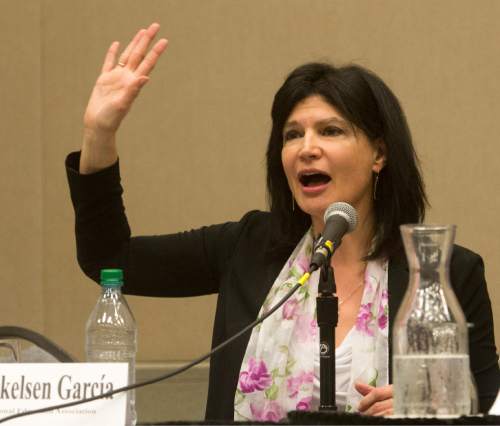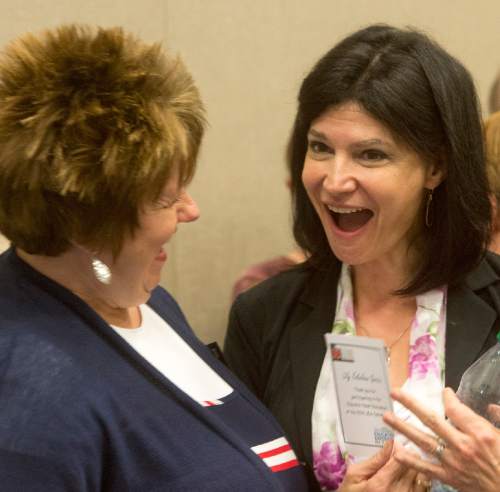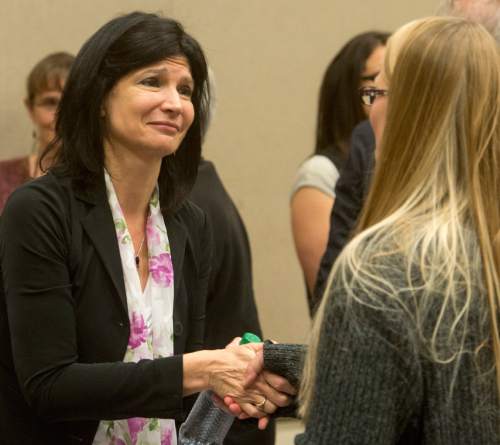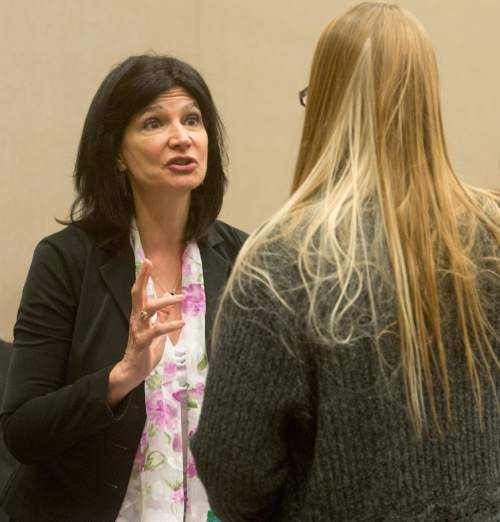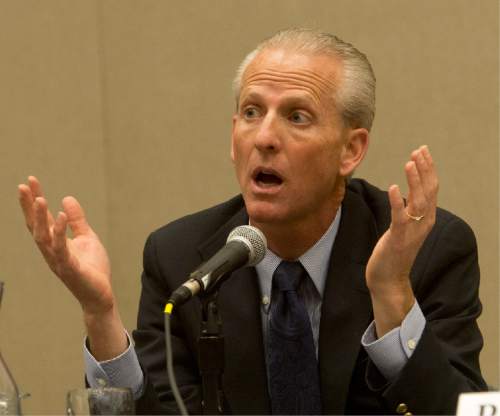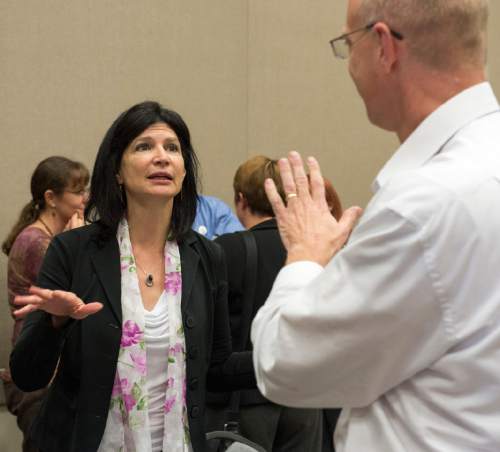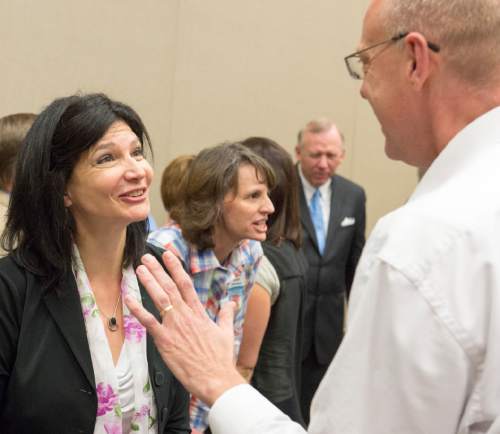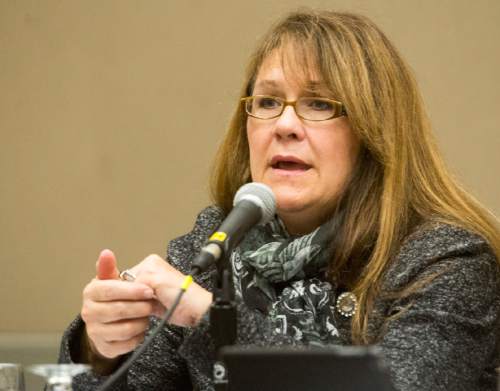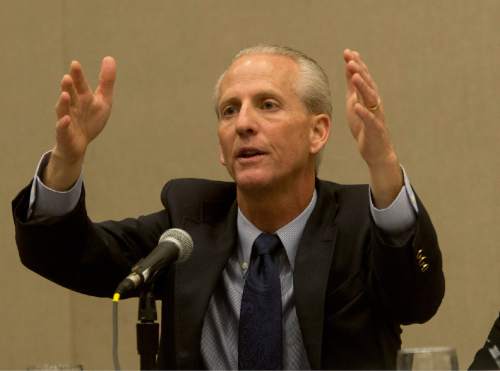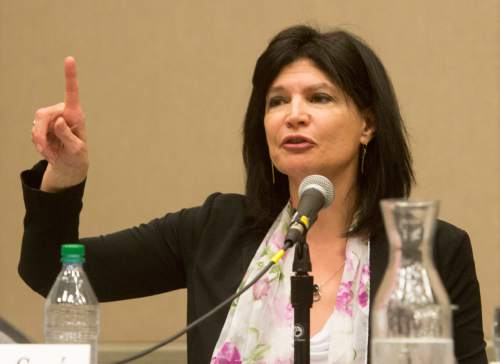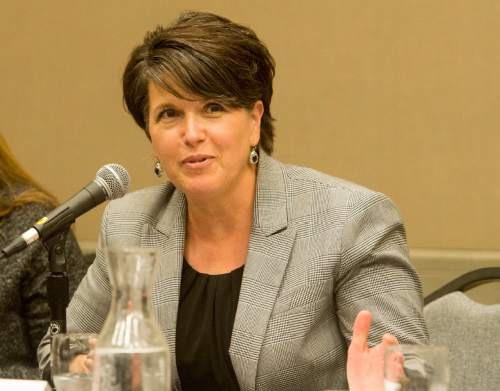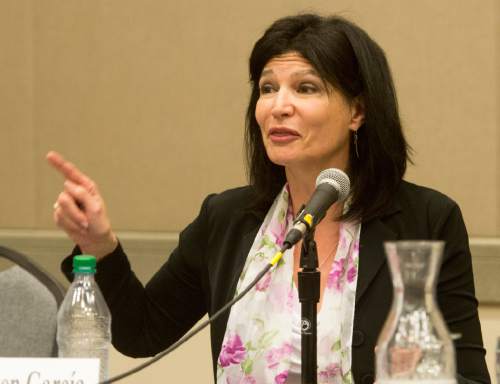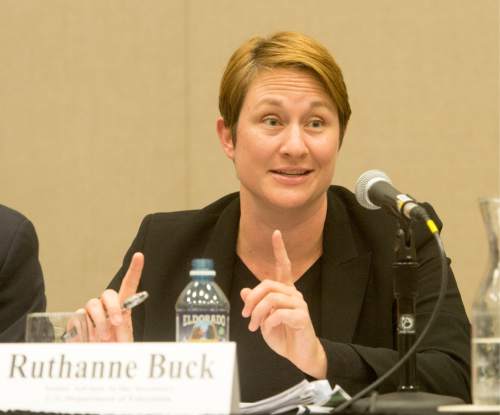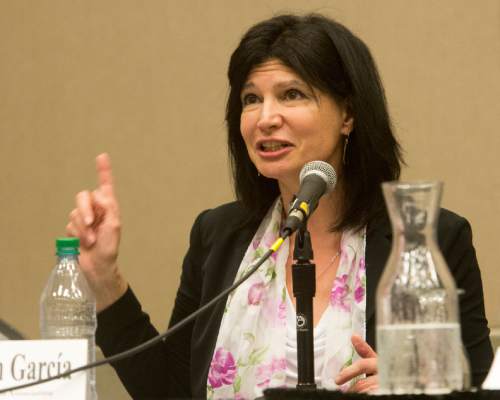This is an archived article that was published on sltrib.com in 2014, and information in the article may be outdated. It is provided only for personal research purposes and may not be reprinted.
Sandy • A former Utah educator returned home to a rock-star welcome Thursday as she criticized the "toxic" culture of testing in America's public schools.
Lily Eskelsen Garcia, a former Utah Teacher of the Year who recently was elected president of the National Education Association, kicked off the Utah Education Association's convention at the South Towne Expo Center in Sandy. Her opening address condemned the use of standardized tests as a measurement of teacher effectiveness and encouraged educators to "let the test scores fall wherever they fall."
"I'm not afraid of tests. I'm not afraid of data," she said. "I'm afraid of pretending that this test score means something that it doesn't."
Eskelsen Garcia is a familiar face in Utah. She ran for Congress against Merrill Cook in 1998. In 2002, she left the state for Washington, D.C., when she was elected NEA secretary.
Her remarks came about a week before the first scores from Utah's new statewide testing system, SAGE, are scheduled to be released.
In accordance with state and federal laws, SAGE scores will be used as the basis for school accountability reports and educator performance evaluations.
Eskelsen Garcia said that "accountability" has come to be a replacement term for "punishment."
She said that using test scores as the primary basis for school review places a burden on teachers while ignoring the role that state lawmakers, policymakers and parents play in public education.
"None of these numbers," she said, "hold anyone else accountable for how well these students are doing."
She also made several references to "No Child Left Untested," a jab at the No Child Left Behind program that became federal law in 2002 and launched a wave of testing-based accountability initiatives in the nation.
The law called for an annual increase in the number of students testing proficient on year-end tests, leading to an infamous and failed requirement that 100 percent of students meet grade-level expectations in 2014.
Most states, including Utah, have received waivers from the progress requirements of No Child Left Behind. But the requirement that students participate in statewide, year-end testing has remained in place.
"We have an entire generation of kids who have never lived under anything except this testing obsession," Eskelsen Garcia said.
Others at the UEA convention's opening day also questioned federal education policy.
During a panel discussion with Eskelsen Garcia and other local and national education representatives, Utah Senate President Wayne Niederhauser, R-Sandy, said there is a role for the federal and state government in setting education policy, but those roles should be increasingly limited as they extend away from the classroom.
"The further you are up the food chain, the less you should micromanage education," he said.
Niederhauser acknowledged Utah's last-in-the-nation ranking for per-pupil spending. He said lawmakers are discussing ways to address school funding, but those conversations come in the context of a larger state budget with competing interests.
Lawmakers have to be responsive to all Utahns and not just educators, Niederhauser said, and the Legislature is representative of the general public.
"You have to change the people to change the Legislature," he said.
But Eskelsen Garcia pushed back, getting applause from the audience when she asked the teachers present to raise their hand if they had ever been forced to use funds from their personal family budget to buy classroom supplies.
"They could not run the system without our personal pocketbook dollars," she said.
Eskelsen Garcia said that instead of expecting teachers to do more with less and then punishing them when children under-perform, lawmakers should be held accountable for adequately equipping schools with the resources they need for success.
"I want an accountability system," she said, "that will label legislators, label politicians on how well they do their job in giving us what we need to do our job."
Sharon Gallagher-Fishbaugh, president of the Utah Education Association, said the ability of teachers to do what's best for students has been undermined by policies set by noneducators.
She specifically cited school grading, a program that started in Utah last year. Gallagher-Fishbaugh said the grades are intended to be transparent but instead do an "injustice" to parents, teachers and students.
"It does nothing except paint teachers as failures and students as well," she said.
Eskelsen Garcia said schools are being "bombarded with bad, bad, bad ideas" from outside the teaching profession and people need to reject the premise that educators chose their careers because they had nothing better to do.
"We need to change the conversation," she said. "The whole conversation has been about how we can't be trusted."


